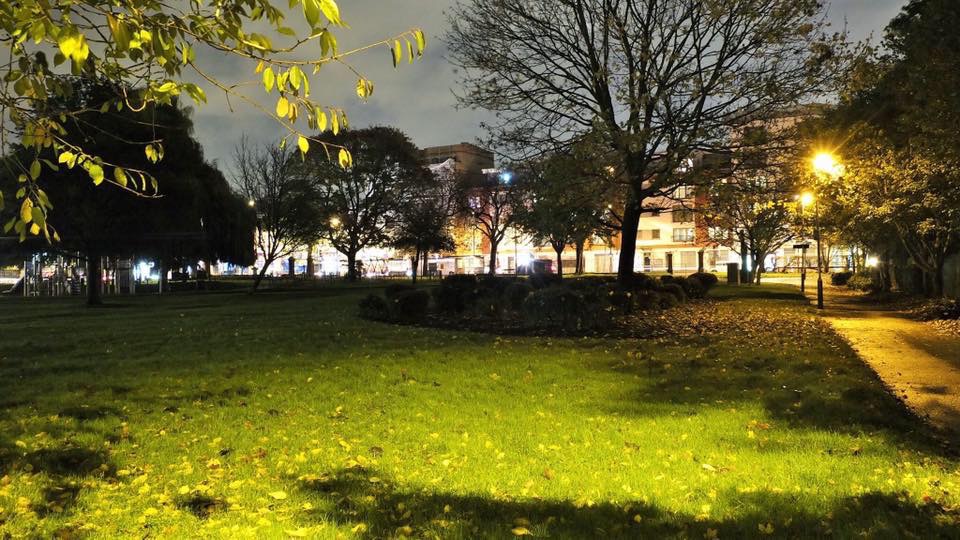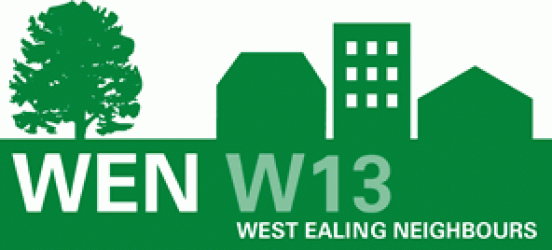This is the April edition of Ealing Matters’ newsletter on planning issues.
Greetings from the Ealing Matters working group. We hope that you are
keeping safe and well in these extraordinary times. Despite the current
health crisis, Ealing Council’s planning juggernaut keeps rumbling on
(see below). This is a brief summary of the latest news from around the
borough.
STOP THE TOWERS – 174, THE LATEST TALL TOWERS TOTAL
Over 200 Stop the Towers Ealing demonstrators assembled outside
Ealing Town Hall prior to an LBE Council Meeting on 25 February 2020. It
was captured on video and can be viewed at Exposurebox.com.
Stop the Towers started in
June 2019 when local residents were horrified to find that two tower
blocks were proposed close to each other and West Ealing Station. One is
25 storeys and the other 26 storeys. Just over one mile north of the
station local residents were similarly shocked in October 2019 to
discover details of a planning application for a six-tower block on and
around the Gurnell Leisure Centre site (although redevelopment rumblings
go back to 2015). Since then Ealing Matters and Save Gurnell have
worked together to identify, document and create a computer simulation
of this explosion of approved and planned tower blocks throughout
Ealing. Only Northolt so far is untouched by the outbreak – Acton,
Central Ealing, Greenford, Hanwell, Park Royal, Perivale, Southall and
West Ealing are all to be blighted. North Acton and the centre of
Southall will perhaps become two of the most tower-dominated suburbs in
the UK.
According to the latest (not yet exhaustive) figures from the Save
Gurnell/Ealing Matters’ database, the 10+storey tower blocks recently
built, being built, within the planning system or developer announced in
the London Borough of Ealing number 174. 36 of these are or will be
20+-storeys high. Absolutely staggering.
Ealing Matters is in the process of adding quick reference detail
about these developments to the Development Info section of the website,
starting with those at the early stages of the planning process. These
pages include the location of the development, the number and type of
housing units and the amount of affordable housing included in the scheme
together with artist’s impressions.
NEW EALING LOCAL PLAN
Analysis of all 33 London boroughs shows that Ealing’s Local Plan
is the most out-of-date in London overall. Ealing has failed to monitor
delivery of the plan since 2013/14, something that it is required to do
annually. It has also failed to bring forward a timetable for making
amendments to the plan in the light of existing national and regional
(London) policy, which would involve at least two stages of public
consultation. All efforts by Ealing Ma3ers and others to discover or even
participate in the drafing of a new Local Plan for Ealing have come to
nothing. Local residents’ groups last meeting with Ealing’s planning
supremos on 9 October 2019 was somewhat acrimonious. Attempts at
meetings this year in January and then on 3 March floundered. The latter
meeting apparently failed because the Chief Planning Officer said he could
not find a venue.
The Government has delayed approval of the draft new London Plan
and expressed dissatisfaction with aspects of it. Changes to national
planning guidelines are being proposed. All the uncertainty around
national and regional planning guidelines, allied to the Council’s
pre-occupation with Covid-19 mitigations, will no doubt fuel further
Local Plan delays.
1
EALING COUNCIL PLANNING COMMITTEE
The Ealing Council Planning Committee meeting scheduled for 18 March
2020 took place as planned despite the current health crisis. A recent
email from David Scourfield, Chief Planning Officer, announced that the
Planning Committee meeting due to take place on 15 April has been
cancelled, but that the 20 May meeting is planned to go ahead ‘through
the use of a digital platform’ subject to revised legislation from the
Government. This raises questions about community participation.
Below is a round-up of what has been going on in individual areas across the borough.
ACTON
Friary Park redevelopment Built in the 1980s and close to Acton
Mainline station, Friary Park is a low-rise residential estate with 225
homes. In November 2019 Ealing Council granted the estate’s owners,
social housing providers Catalyst Homes, planning consent to redevelop
the site to provide 990 apartments in six towers of up to 24 storeys.
The scheme raised huge local controversy. Assured that they would be
rehoused within the new scheme in better homes, Catalyst’s tenants
largely supported it, whereas leasehold owners were against, fearing
they would be inadequately compensated for the loss of their homes.
Nearby residents whose Edwardian and 1930s houses and gardens will be
dwarfed by the neighbouring towers were also strongly opposed. They said
they did not object to a redevelopment of Friary Park but believed what
is planned is a very serious overdevelopment and totally out of context
with the area’s suburban character.
The scheme is with the Mayor of London for final approval. Central
Acton Neighbourhood Forum (CANF) have been leading the objections. They
are lobbying the Mayor to withhold his approval and are demanding
explana$ons from the Council about irregularities in their processing of
the application, including the absence of the required Environmental
Impact Assessment. More on the CANF website.
CENTRAL EALING
Victoria Hall
Friends of the Victoria Hall still await the outcome of the Charity Commission’s independent review. This long running review began on 8 January 2020. The Commission is pondering comments made by Friends of the Victoria Hall and others about the Commission’s Scheme which would allow Ealing Council to erroneously dispose of Victoria and Prince’s Halls. More here.
Later: The Charity Commission has stopped Ealing Council’s plans to sell Victoria Hall to a hotel developer. Full story on Ealing Today site here.
Perceval House redevelopment
Working with its development partner Vistry, the Council is steaming
ahead with its plans to redevelop its offices at Perceval House, even
though they are less than 40 years old. A recent exhibition of Vistry’s latest thinking
shows a very high density scheme including residential blocks whose
height they omitted to mention but is at least 26 storeys, or possibly
even the 28 stated in their Environmental Impact Assessment application.
Whatever the truth, the new blocks will overpower the old Town Hall
which is so iconic of Ealing. Vistry has shown little interest in
modifying their plans to take on board strong local objec$ons. A
planning application is promised shortly. It is impossible to know how
objectively Ealing’s planners will be able to assess its merits given
the interest the Council has in making sure it goes ahead.
HANWELL
Warren Farm
The first stage of Hanwell Nature’s Warren Farm Judicial Review (JR)
took place on 2 April 2020. The locally based advocacy group is
challenging the Council’s consent for Queens Park Rangers FC to take
over its 61- acre Warren Farm, without undertaking a requisite
Environmental Impact Assessment. Warren Farm is one of the few remaining
nature sites in the Borough and it is part protected as a Site of
Importance for Nature Conservation. Presiding over this first hearing,
the Hon Mrs Justice Elizabeth Laing DBE disregarded the Council’s
objections and ruled that a full two-day review of the Council’s
decision should proceed. No date has yet been announced. See www.hanwellnature.com for news updates.
Olde Hanwell CPZ
If the Council gets its way, the cul-de-sac that is Olde Hanwell will
be the last piece in a jigsaw of Controlled Parking Zones (CPZs) in the
Hanwell area. Since time immemorial Olde Hanwell residents have been
able to park their cars on the pavements along the narrow streets. This
arrangement has no doubt created some obstruction for pedestrians, but
as the traffic is usually very light, they can generally share the road
space happily enough with the occasional slow-moving vehicle. Few
residents were aware there was any problem that needed solving.
This was until the Council ran a ‘public consultation’ in 2019 that
very few people knew about. The consultation documentation told
residents that a CPZ was required because non-residents and commuters
were parking in the area. This was despite the fact that its own
research showed that on the day of its survey 88% of the vehicles parked
in the area were resident-owned.
If the CPZ is introduced pavement parking will be allowed on only 5
out of 29 streets. Extensive double yellow lining will severely reduce
the available space – by 256 spaces according to Olde Hanwell Residents
Association calculations. With no free spaces adjacent to Olde Hanwell,
where will residents now be able to park? A public meeting to discuss
residents’ concerns was turned down even before the current restrictions
were introduced.
The closing date for comments on the plans was 25 March 2020 – of
course afer the restrictions were introduced. Ealing Council has not yet
announced whether the date will be extended. Exposurebox has aired the
concerns of many local residents at https://exposurebox.com/hanwell-towncentre-cpz/.
SOUTHALL
Save the Tudor Rose
The Tudor Rose is an Art Deco building in the centre of Southall with
a rich cultural, musical, performance and community-binding history. It
opened in 1910 as the Southall Electric Theatre and was Southall’s first
cinema. It was the first cinema in the UK to show Bollywood films. For
over 35 years now it has been a major African-Caribbean culture and
music venue of international repute. It also serves as a cultural centre
for Asian and Somali communities. It is the only Southall venue owned
and managed by the African-Caribbean Windrush genera$on.
Ealing Council and the Peabody housing association want to demolish
the Tudor Rose and replace it with a housing development. A Planning
Application is expected soon. More at www.visitsouthall.co.uk/News/ NewsDetails.php?recordID=1101
WEST EALING
Dean Gardens
£1.4 million is being spent to ‘transform’ Dean Gardens which was
created in 1910/11 in the centre of West Ealing. Local residents were
shocked when 30 mature trees were unceremoniously felled in February
2020. At recent Elthorne and Walpole Ward Forums, as well as at a West
Ealing Neighbours public meeting, concerns were expressed about certain
aspects of the draft plans. These included the loss of play equipment
for toddlers, the removal of the 110-year-old heritage brick and iron
railings and an unfenced community growing garden. Improved lighting in
the park is being universally welcomed. The gardens are likely to be
closed for up to a year from some time in early summer 2020. This
project is part of a £9 million TfL/Ealing Council funded project to
improve cycling, pedestrian and public transport facili$es in central
West Ealing. This project is variously called West Ealing Liveable
Neighbourhood and Live-West-Ealing.
With the recent temporary exclusion of many school pupils and the
enforced closure of many local businesses the potential, imminent
closure of Dean Gardens seems clearly inappropriate. Albeit keeping
their distance from others, people of all ages in central West Ealing
will need the open space for walking, sittng and mum and toddler
activities. More at www.livewestealing.org.
With thanks to Eric Leach for compiling the information for this
latest issue. Contributions that you think would be of interest to
Ealing Matters member groups are welcome.





